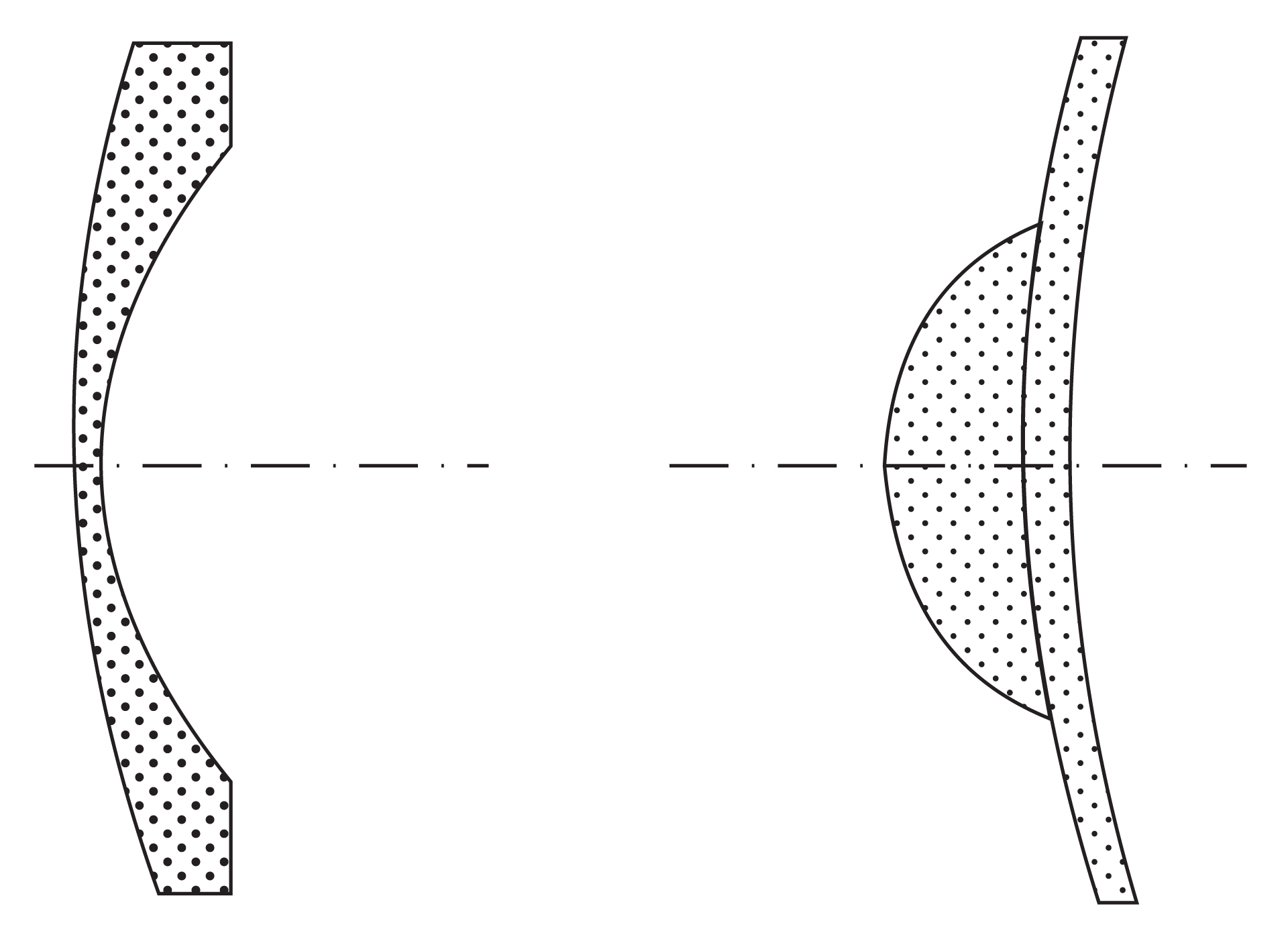Lenticular lens centering
Introduction
Lenticular spectacle lenses are lenses with high vertex refraction. Concave lenticular lenses has peripheral lenticular cut to decrease their weight. In convex lenticular mineral lenses is affixed superior part of the lens to the base lens. Aesthetic appearance is not good.

Currently we use plastic lenticular spectacle lenses with polish transmission from base part to optic part. If we want to center lenticular lens we place the patient to look into infinity with natural head position. If we use aspheric lens we have to center it with respect to real rotation eye center.
Goals
- Center spherical lenticular spectacle lens
- Center aspheric lenticular spectacle lens
- Draw plastic lenticular spectacle lens and describe it parts
Equipment
Lenticular spectacle lens, spectacle frame, special pencil for demo-foil.
Methods
Center spherical lenticular spectacle lens
Patient wear spectacle frame. Mark pupils position on frame’s demo-foils during natural distance view. Measure distance between pupil and lower part of the spectacle eye.
Center aspheric lenticular spectacle lens
Patient wears spectacle frame. Move with the patient’s head to set the perpendicular view. Patient’s spectacles should be perpendicular to the ground. Pantoscopic angle is zero. Measure distance between pupil position and lower part of the spectacle eye.
Draw plastic lenticular spectacle lens and describe its parts
Draw lenticular lens and mark distance centration point, optical zone and peripheral base lens of the lenticular lens.
Results
Calculate the difference between both types of centration (spherical and aspheric lens)
Draw plastic lenticular spectacle lens and describe its parts
Discussion
Lenticular spectacle lenses are used for high ametropia over 9 D. But we currently use usually spectacle frame with high refractive index 1.74. These lenses we use successfully for refraction errors around 10 D. Main advantage of lenticular lens is weight reduction. Main disadvantage of lenticular lens is bad aesthetic appearance and smaller visual field. This visual field would be more reduced if we center the lens according point imaging.
Conclusion, notes, comments
Which phenomenon follows high ametropia correction and reduces good lens’ appearance?
Is there any solution how to center lenticular lens to ensure point imaging and full visual filed?